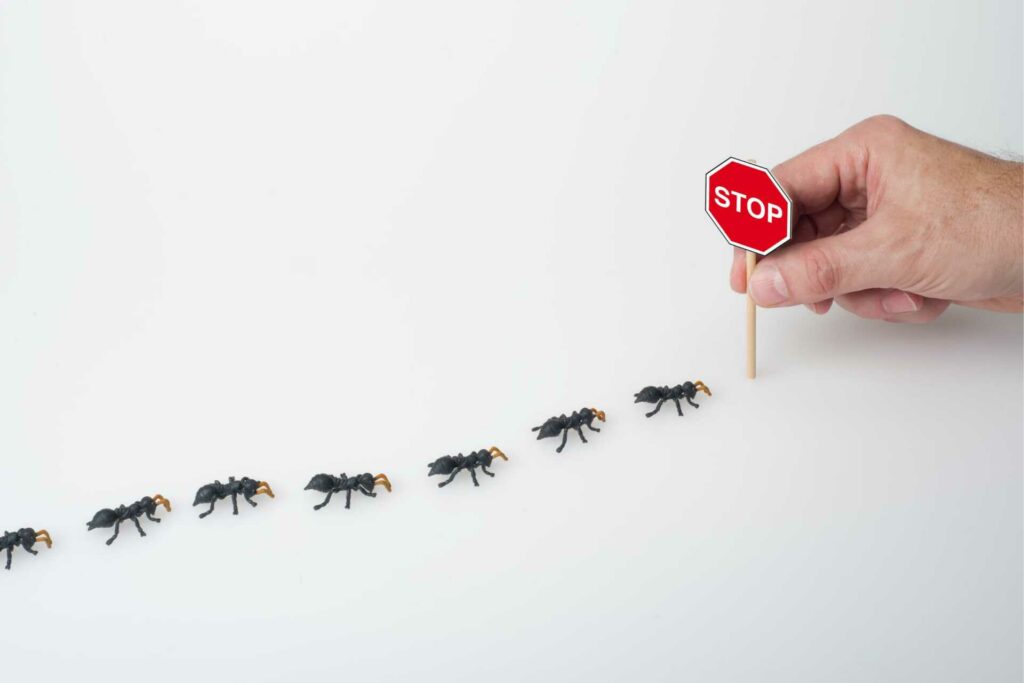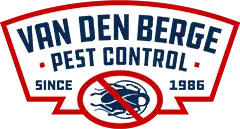
Contents
Are you tired of battling pesky pests that invade your home or garden? Look no further than chemical methods for pest infestation prevention. With their proven effectiveness and wide range of applications, these methods offer a reliable solution to keep unwanted critters at bay.
But why choose chemical methods over other alternatives? Well, let’s just say that the answer lies in their ability to provide long-lasting protection and ensure the health and safety of your environment.
So, if you’re looking for a comprehensive discussion on the benefits and considerations of chemical pest prevention, buckle up and get ready for some eye-opening insights.
Methods for Pest Infestation – Key Takeaways
- Chemical pest prevention methods are cost-effective and readily available, making them a convenient solution for controlling pest infestations.
- These methods offer long-term effectiveness due to their residual effects, providing continuous protection against pests and preventing costly damages.
- While chemical pesticides may have potential environmental drawbacks, alternative options like natural repellents, physical barriers, and integrated pest management can be considered.
- When properly applied using targeted techniques and following the manufacturer’s instructions, chemical methods can be a valuable addition to pest management plans, ensuring maximum efficacy and contributing to the well-being of the environment.
Benefits of Chemical Pest Prevention
Chemical pest prevention offers numerous benefits, making it an effective and efficient method for protecting your property from infestations. When it comes to pest control, cost-effective solutions are essential, and chemical methods provide just that. By using chemicals to prevent pests, you can save money in the long run. Unlike other methods, chemical pest prevention is a cost-effective solution that offers long-term effectiveness.
One of the main advantages of chemical pest prevention is its affordability. Chemical pesticides are readily available and can be purchased at a reasonable price. This makes them a cost-effective option for homeowners and businesses alike. By investing in chemical pest prevention, you can avoid costly damages caused by infestations, such as property damage or crop loss. With chemicals, you can tackle the problem head-on and prevent it from escalating, saving you money in the process.
In addition to being cost-effective, chemical methods also offer long-term effectiveness. Chemical pesticides are designed to target and eliminate pests, providing a lasting solution to your infestation problem. These pesticides are formulated to have a residual effect, meaning they continue to work even after the initial application. This ensures that pests aren’t only eliminated but also deterred from returning in the future.
Chemical pest prevention is a reliable and efficient method for protecting your property from infestations. With its cost-effective solutions and long-term effectiveness, you can have peace of mind knowing that your property is safeguarded against pests. So, if you’re looking for an effective and efficient way to prevent pest infestations, consider using chemical methods.
Types of Chemical Pest Control Products
To effectively protect your property from infestations, it is important to explore the various types of pest control products available that utilize chemicals. Chemical insecticides are commonly used to eliminate pests and prevent infestations. These products are highly effective in controlling and eradicating pests, providing you with peace of mind and a pest-free environment. However, it is also essential to consider natural alternatives that are less harmful to the environment and your health.
Here is a table that outlines the different types of chemical pest control products and their key features:
| Chemical Pest Control Products | Key Features |
|---|---|
| Insecticidal sprays | These sprays are easy to use and can be applied directly to affected areas. They provide quick results and effectively eliminate a wide range of pests. |
| Baits and traps | Baits and traps are designed to attract pests and kill them. They are highly effective for targeting specific pests, such as ants, rodents, and cockroaches. |
| Residual insecticides | These products create a long-lasting barrier that prevents pests from entering your property. They are typically applied to surfaces and provide continuous protection against pests. |
While chemical insecticides offer immediate and effective pest control, it is important to consider natural alternatives as well. Natural pest control methods, such as using essential oils, vinegar, or diatomaceous earth, can be just as effective in preventing and eliminating pests. These alternatives are often safer for the environment and pose fewer risks to human health.
Effective Application Techniques for Chemical Pest Prevention
For effective pest prevention using chemical methods, it’s crucial to master the application techniques that ensure maximum efficacy. By following these techniques, you can effectively control pests and keep your surroundings safe.
Here are some key application techniques to consider:
- Proper Dilution: Diluting the chemical according to the manufacturer’s instructions is essential to maintain pest control effectiveness. Using the right concentration ensures that the chemical is strong enough to eliminate pests without harming the environment or humans.
- Targeted Application: Applying the chemical directly to the affected areas ensures that it reaches the pests effectively. By focusing on infested areas, you can minimize the amount of chemicals used, reducing any potential risks.
- Regular Inspections: Conducting regular inspections allows you to identify pest-prone areas and treat them promptly. By staying proactive, you can prevent pests from spreading and minimize the need for excessive chemical application.
In addition to these techniques, it’s important to follow safety precautions to protect yourself and others. Remember to:
- Wear Protective Gear: Always wear appropriate protective clothing, such as gloves, goggles, and masks, when handling chemical products. This helps prevent skin contact and inhalation of harmful substances.
- Read Labels: Carefully read and follow the instructions provided on the product labels. This includes information on dosage, application methods, and any necessary precautions.
- Store Properly: Store chemical products in a secure and designated area, away from children and pets. Ensure that containers are tightly sealed to prevent accidental spills or leaks.
Environmental Considerations in Chemical Pest Prevention
When considering chemical pest prevention, it is important to take into account the potential impact on the environment. As much as we want to protect our homes and gardens from pests, it is equally crucial to ensure that our actions do not harm the natural world around us. Sustainability concerns should be at the forefront of our decision-making process when it comes to pest prevention.
To better understand the environmental implications of chemical pest prevention, let’s take a look at the table below:
| Potential Environmental Impact | Alternative Solutions |
|---|---|
| Harmful to beneficial insects | Biological control |
| Contamination of water sources | Integrated pest management |
| Soil degradation | Natural repellents |
| Air pollution | Physical barriers |
This table highlights the potential consequences of chemical pest prevention and suggests alternative solutions that are more environmentally friendly. By opting for biological control, we can protect beneficial insects that play a vital role in our ecosystems. Integrated pest management allows for a holistic approach to pest prevention, minimizing the contamination of water sources. Natural repellents provide a safer option for soil health, while physical barriers help reduce the need for chemical sprays that can contribute to air pollution.
Choosing alternative solutions not only helps protect the environment but also promotes a sense of belonging within a larger ecological community. By making sustainable choices, we contribute to the well-being of our surroundings and foster a sense of harmony with nature.
Integration of Chemical Methods in Pest Management Plans
Consider incorporating chemical methods into your pest management plan for effective and targeted control. While alternative pest prevention methods are important, chemical methods can be a valuable addition to your overall strategy. Here are three reasons why integrating chemical methods can enhance your pest management plan:
- Pest control effectiveness: Chemical methods have proven to be highly effective in eliminating pests and preventing infestations. They can specifically target pests that are difficult to control using other methods, such as termites or bed bugs. Chemical treatments can penetrate deep into crevices and hidden areas where pests may be hiding, ensuring that they’re eradicated effectively.
- Targeted control: Chemical methods allow for precise targeting of specific pests, minimizing the impact on non-target organisms. By using the appropriate chemicals and application techniques, you can focus on the pests that pose the greatest threat to your environment while minimizing harm to beneficial insects, animals, and plants. This targeted control approach ensures that you can effectively manage pest populations without causing unnecessary harm to the ecosystem.
- Complementary to alternative methods: Integrating chemical methods into your pest management plan doesn’t mean abandoning alternative methods. On the contrary, chemical methods can be used in conjunction with other pest prevention strategies, such as sanitation practices and physical barriers. This integrated approach maximizes the effectiveness of your pest management plan and provides a comprehensive solution to your pest problems.
Review
In the garden of pest prevention, chemical methods serve as the mighty guardians, protecting your plants with their powerful swords. Their benefits are vast, their products diverse, and their application techniques effective.
However, amidst this battle, let’s not forget the importance of environmental considerations and the integration of these methods into holistic pest management plans.
So, choose wisely, for the chemical warriors can be your allies, but only if wielded with care and thoughtfulness.
Recent Posts
Effective Local Roach Extermination for Homes
Dealing with roaches in your home can be frustrating and challenging. Recognizing the signs of
Effective Flea Extermination for Your Pets
Just as a knight must armor up to battle a dragon, you need a solid
What Are Professional Flea Extermination Services?
If you’re dealing with a flea infestation, understanding professional flea extermination services is vital. These
